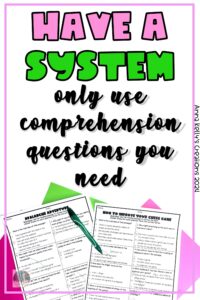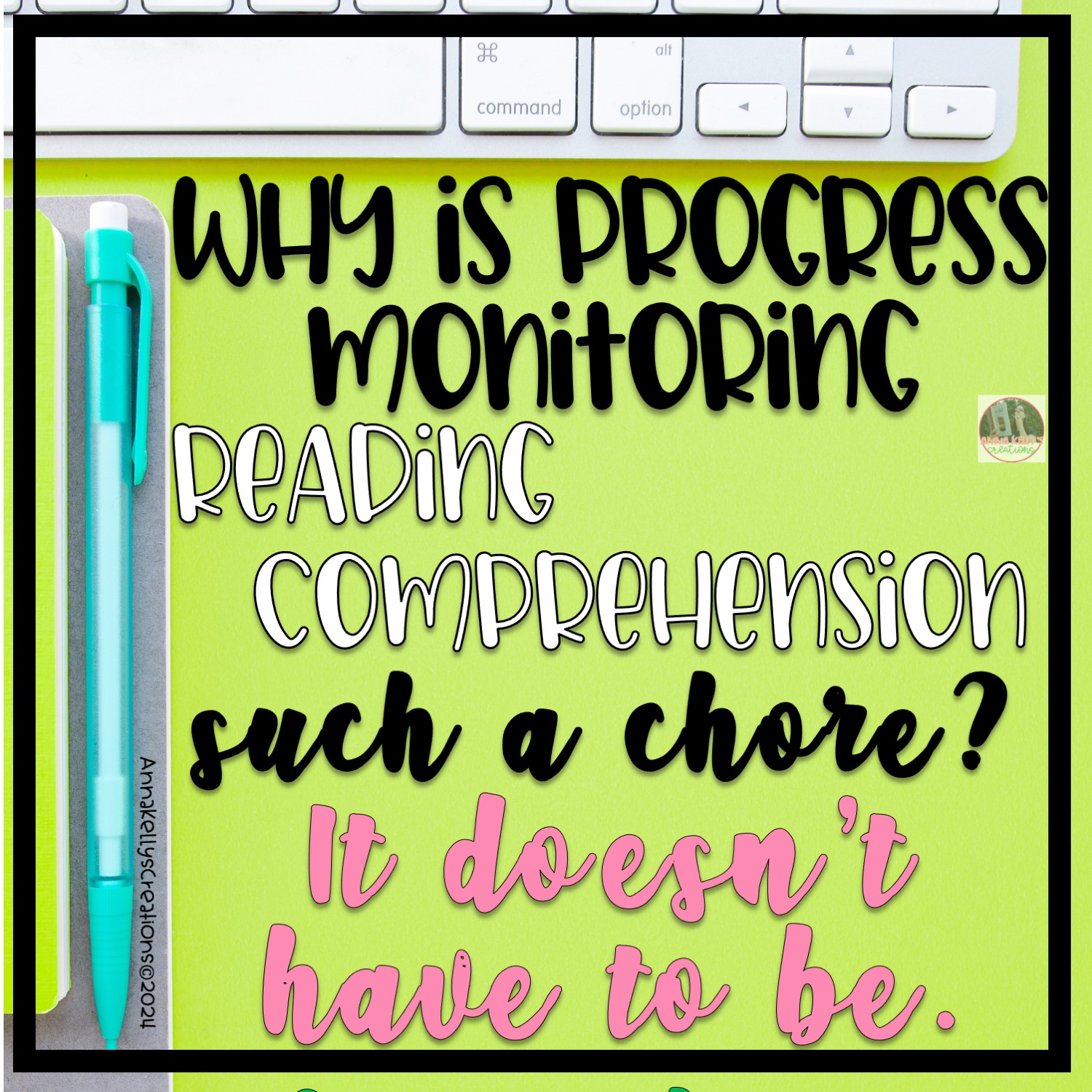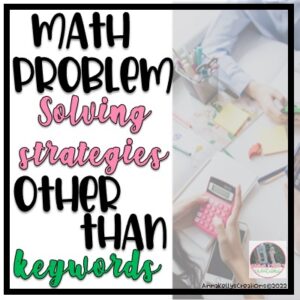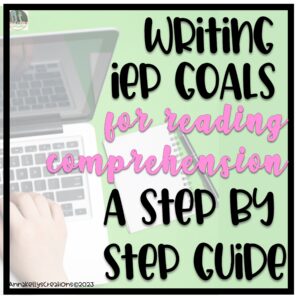It doesn’t have to be!
It’s a Thursday afternoon…two weeks before progress reports are due, you’re checking your data points for reading comprehension, and you see you haven’t progress monitored your students in a bit…Ugh, why does it have to be such a long process? It was for me as well for many years until I streamlined my process. I can run weekly reading comprehension checks without giving up my entire intervention or planning period to create them. Let me share some of my tips with you today.
Have a system:
I would spend hours searching all of the reading comprehension probes sites for quick passages that also had types of questions I measured my students on. I would then go completely old school, print out the papers, cut out the questions I needed, and tape them onto a blank paper to copy—literally cut and paste. You don’t want to waste your intervention time gathering unnecessary data; if your student doesn’t have summary comprehension questions on their IEP goal or objective, why test them over it? I’m not saying never to teach this skill or take time in intervention to practice, but this isn’t something you need to gather data on.
These days the cut and paste can be done on Google Forms, you can copy a reading passage and write any questions your students need to practice. You also get immediate results which is great. How helpful this would have been for me 18 years ago when I first began!

I quickly found that there were some common comprehension skills most of my caseload would need to work on. Finding the main idea, context clues, and inferential questions were some. So, I made it my goal to create a library of reading comprehension probes and questions that only covered these topics. I also needed reading comprehension probes that weren’t pages long, quick, ready-to-go passages. I would do my cut-and-paste method, then keep them all in a binder for quick access for the following year.
I saved myself time by always making number 1 main idea questions, number 2 always context clues, etc. When grading and collecting data, this makes it so easy on my part. I quickly reviewed my student’s reading comprehension probe and saw, “Oh, she always misses number 2,” which is context clues. We need to work more on this skill.
Keep all of their data organized, I prefer paper probes, however I keep spreadsheets of all of their data for easy access. I also keep their paper copies so I can pull them out at progress writing time, or even in IEP meetings to show examples to the team.

Test Often:
Once you get a sound library full of probes, you can come up with a testing schedule. I would make it my personal goal to complete at least five reading comprehension probes each quarter. Having all of this data makes writing progress reports a breeze. Students get used to the schedule and routine, and the time used during intervention is less and less as students get more comfortable.
The more you monitor your student’s progress, the more data you have to shape your intervention time as well. For example, you can see they are still getting the main idea questions wrong frequently. You can find more activities and practice with this skill. More data will also allow you to see success quickly; you can celebrate with students and show them their hard work is paying off.
Involve Your Students:
Students love to track their data and see their successes as well. Show them their goals and objectives. Go over some of their scores with them and see what goals they can develop. This allows them to take ownership of their learning and set achievable goals for themselves. As they see progress, it motivates them to continue working hard.
Involving your students in the data analysis also helps build their metacognitive skills. They will start to understand their strengths and weaknesses and can begin to reflect on what strategies work best for them. This not only benefits their current academic performance but also sets them up for success in future learning endeavors.
Time Saver Tips:

Some other time-saving tips for you are reading the passage and questions to your students, repurposing the reading comprehension probes, and finding some already made for you.
If you are not testing your student’s reading fluency or skills at the same time, record yourself reading the probe and questions. This gives you a true picture of your student’s comprehension abilities. When they aren’t strong readers, and you ask them to read the passage on their own and answer questions, you are also measuring their reading skills, so just keep that in mind. By recording yourself, you save time, you can put the link in your online student management system, and the students can listen on their own. This way, you can have several students working on different things simultaneously, rather than them having to wait to come up to you to read it.
Repurpose your reading comprehension probes; they work great for fluency or intervention. Once students have taken the assessment, use it for repeated readings for fluency. Hand the paper back to the student and review each question with them. This is a great intervention; students get personal, quick feedback on their progress.
 Finally, find probes that are made for you. You can find free probes on several websites, such as easycbm and readworks. They work great for quick reading passages and premade questions. However, the questions might not always be the areas you are testing or in the same order.
Finally, find probes that are made for you. You can find free probes on several websites, such as easycbm and readworks. They work great for quick reading passages and premade questions. However, the questions might not always be the areas you are testing or in the same order.
I have made reading comprehension probes for grades 1-5th in my store. They are quick reads, one page long, and have a consistent question order as described above. Each probe has questions on main idea, recall, context clues, and inferential. Make sure to click the link or any of the photos if you want to save yourself even more time.
Digital versions could also save you time, you can create Google Forms, write any questions that you need to collect data on. In my ready made reading comprehension probes I have also created these for you. You can change or edit any of the questions for your students’ individual needs.
With these ideas, you never need to be crunched for more data points when it comes to progress report writing time. What are some time-saving ideas you use?




